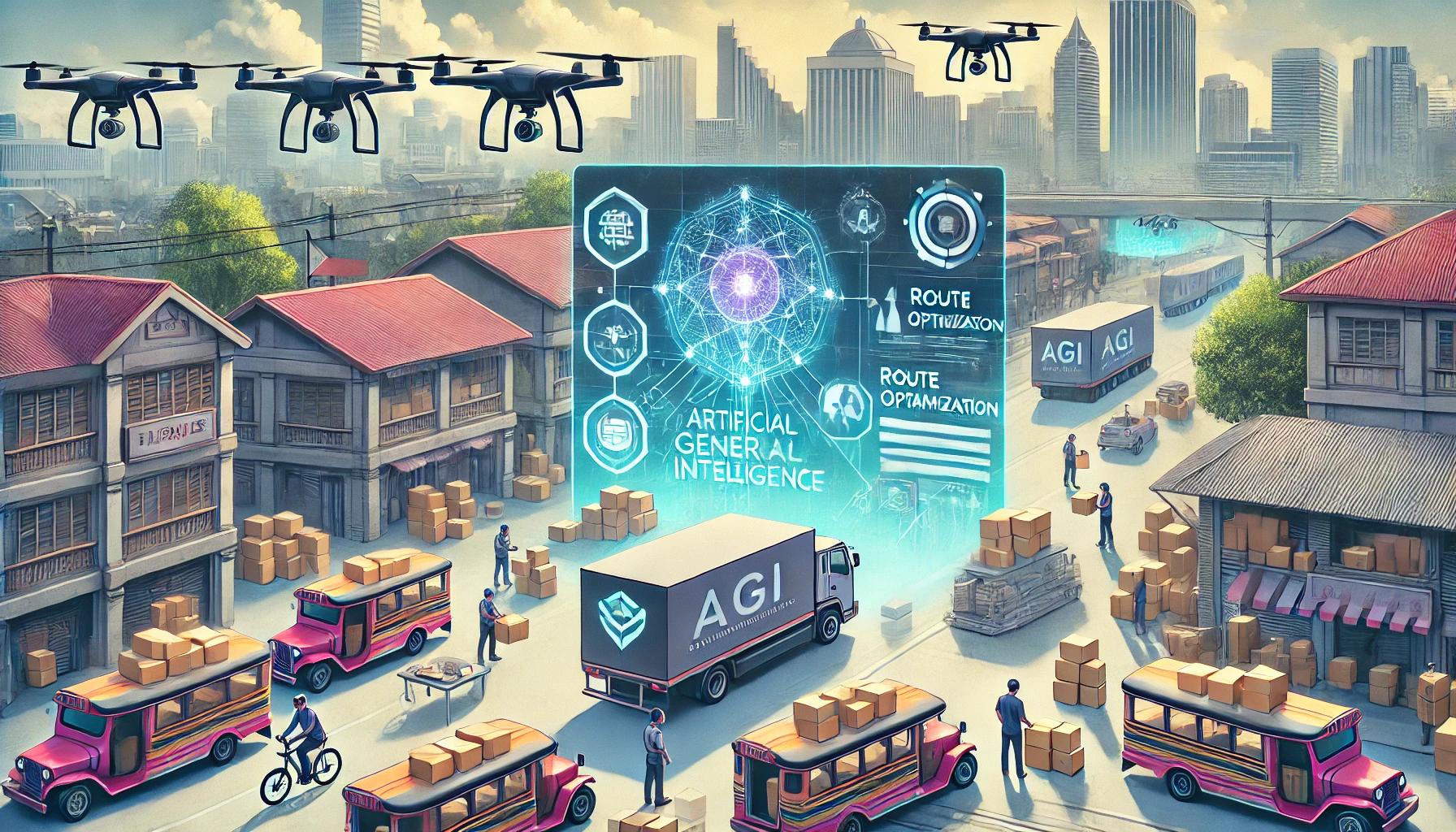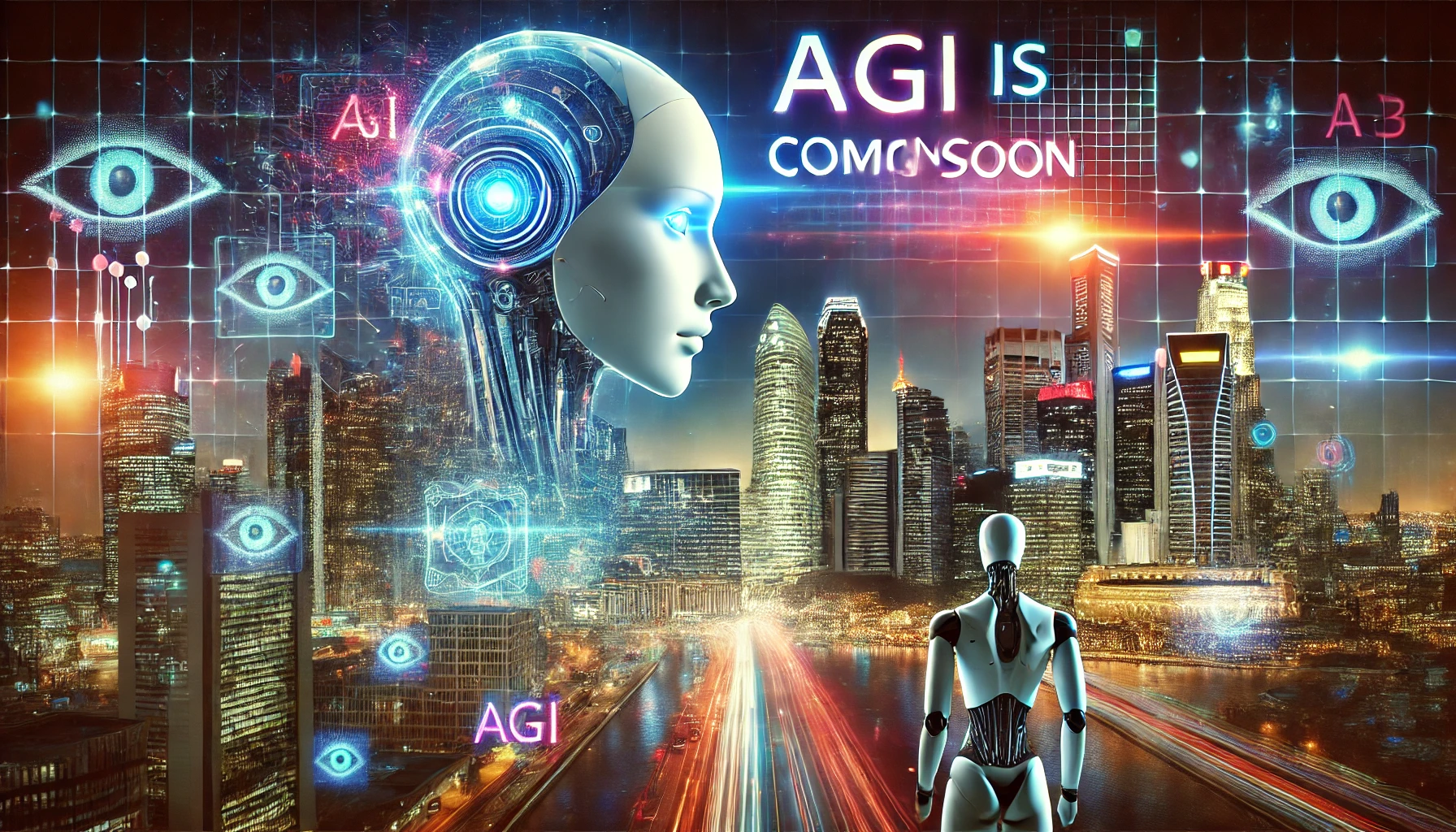In the rapidly evolving world of logistics, efficiency, precision, and adaptability are key to success. For logistics startups in the Philippines, embracing cutting-edge technology like Artificial General Intelligence (AGI) offers a tremendous opportunity to revolutionize operations, reduce costs, and capture market share in an industry ripe for innovation.
What is AGI?
Artificial General Intelligence (AGI) refers to machines capable of performing any intellectual task that humans can do. Unlike narrow AI, which specializes in specific tasks (like route optimization or demand forecasting), AGI can understand, learn, and adapt across a wide range of problems, making it a game-changer for logistics.
Challenges in Philippine Logistics
The logistics industry in the Philippines faces several hurdles:
- Fragmented Geography: The country’s archipelagic nature makes inter-island transport and delivery a logistical nightmare.
- Traffic Congestion: Urban centers like Metro Manila rank among the worst in the world for traffic.
- Inefficiency in Last-Mile Delivery: Poor infrastructure and unpredictable traffic patterns complicate timely deliveries.
- High Operational Costs: Rising fuel prices, manual processes, and limited automation inflate costs.
By leveraging AGI, startups can address these challenges with innovative solutions that transform inefficiencies into opportunities.
Ways AGI Can Benefit Logistics Startups
1. Real-Time Route Optimization
AGI can analyze complex datasets—such as real-time traffic, weather conditions, and delivery schedules—across multiple transport modes. It can instantly recalibrate delivery routes, minimizing fuel consumption and ensuring on-time deliveries even in the Philippines’ notoriously unpredictable urban environments.
2. Supply Chain Automation and Predictive Analytics
AGI excels at identifying patterns across large datasets. Logistics startups can use AGI to:
- Predict demand fluctuations and stock levels with near-perfect accuracy.
- Automate warehouse management, optimizing space and labor allocation.
- Improve supply chain resilience by preemptively identifying potential disruptions and suggesting alternatives.
3. Enhanced Last-Mile Delivery
Last-mile delivery is often the most expensive and complex part of the logistics chain. AGI can optimize delivery schedules, allocate resources intelligently, and even facilitate the integration of emerging technologies like drone or robot deliveries. This reduces delays and customer dissatisfaction.
4. Dynamic Pricing Models
With AGI, logistics startups can implement real-time pricing models based on factors like demand, route complexity, and urgency. This ensures competitive pricing while maximizing profitability, especially during peak seasons or in high-demand areas.
5. Customer Experience Personalization
AGI can analyze customer preferences and feedback to offer tailored solutions:
- Predicting preferred delivery times.
- Offering custom packaging or bundling services.
- Enhancing communication via intelligent chatbots that understand nuanced customer queries.
6. Environmental Sustainability
Sustainability is a growing concern. AGI can enable greener logistics by:
- Optimizing routes for fuel efficiency.
- Suggesting low-emission transportation methods.
- Monitoring and reducing carbon footprints in supply chain operations.
7. Workforce Augmentation
Instead of replacing human workers, AGI can augment them:
- Assisting dispatchers with real-time decision-making.
- Reducing manual errors in data entry and management.
- Empowering drivers with tools to improve safety and efficiency.
Challenges to AGI Adoption
While AGI holds immense promise, startups should prepare for:
- High Initial Costs: Developing and integrating AGI systems requires significant investment.
- Data Security and Privacy: Handling sensitive operational and customer data mandates robust cybersecurity measures.
- Skill Gaps: The Philippine workforce may need training to effectively collaborate with AGI technologies.
Overcoming These Challenges
Startups can explore partnerships with AGI developers, seek government grants or venture capital funding, and implement phased rollouts to reduce initial costs and risks.
Success Stories and Emerging Trends
Globally, companies like Amazon and Alibaba are already leveraging AI to redefine logistics. Philippine startups can draw inspiration from these pioneers, adapting AGI solutions to local needs, such as:
- Balikbayan Box Management: Using AGI to streamline international shipments.
- E-commerce Integration: Facilitating seamless operations for platforms like Lazada and Shopee.
- Cold Chain Logistics: Enhancing efficiency for food and pharmaceutical deliveries.
Conclusion
For logistics startups in the Philippines, AGI is not just a technological advancement—it’s a competitive necessity. By embracing AGI, startups can overcome the nation’s unique challenges, reduce operational costs, and deliver unparalleled value to customers. The time to act is now. Those who innovate will lead the transformation of the Philippine logistics landscape, while those who hesitate risk being left behind.
[SEO optimized]


